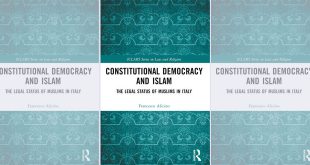In this survey Carool Kersten presents the Islamisation of Indonesia from the first evidence of the acceptance of Islam by indigenous peoples in the late thirteenth century until the present day.
Located on the eastern periphery of the historical Muslim world, as a political entity Indonesia is barely a century old. Yet with close to a quarter of a billion followers of Islam it is now the largest and most populous Muslim country in the world. As the greatest political power in Southeast Asia, and a growing player on the world scene, Indonesia presents itself as a bridge country between Asia, the wider Muslim world and the West.
In this survey Carool Kersten presents the Islamisation of Indonesia from the first evidence of the acceptance of Islam by indigenous peoples in the late thirteenth century until the present day. He provides comprehensive insight into the different roles played by Islam in Indonesia throughout history, including the importance of Indian Ocean networks for connecting Indonesians with the wider Islamic world, the religion’s role as a means of resistance and tool for nation building, and postcolonial attempts to forge an ‘Indonesian Islam’.
About the Author
Carool Kersten is Reader in the Study of Islam and the Muslim world at King’s College London. His research interests include the intellectual history of the modern Islamic world, political Islam, and the Islam in Southeast Asia. He has published four scholarly monographs, including Contemporary Thought in the Muslim World (Routledge, 2019) and A History of Islam in Indonesia (EUP, 2017).
Table of Contents
Introduction
1. The arrival of Islam
2. Network Islam
3. Islam as resistance
4. Islam and nation-building
5. An Indonesian Islam?
Conclusion
Bibliographic Information
Title: A History of Islam in Indonesia: Unity in Diversity
Author(s): Carool Kersten
Publisher: Edinburgh University Press
Language: English
Length: 216 pages
ISBN: 978-0748681846
Pub. Date: January 19, 2017
 Ijtihad Network Being Wise and Faithful Muslim in the Contemporary World
Ijtihad Network Being Wise and Faithful Muslim in the Contemporary World

